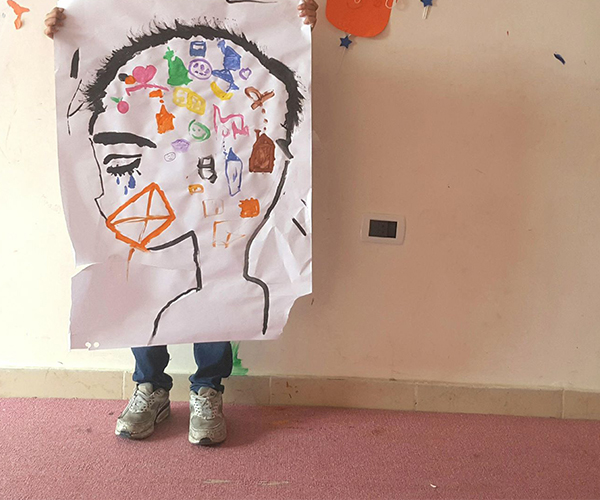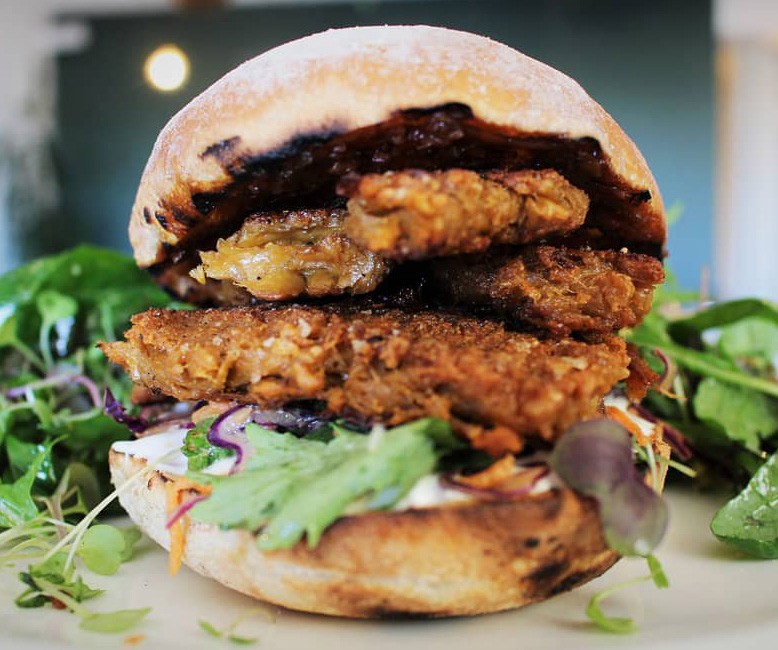Whenever you turn on the news, it’s hard not to feel a pang of despair when you see the terrible conditions that refugees all over the world are forced to live in.
But for anyone who’s ever wanted to help make a difference but can’t afford to donate, there’s something you can do. And it’s all to do with what you eat.
Refugee Week this year runs from 16-23 June and thousands have signed up to take part in the Ration Challenge, an initiative by international aid charity Act For Peace that was co-founded by Karen McGrath and Ben Littlejohn after they spent some time with refugees on the Thai Burmese border in 2014.
It was there that they met Tan, a young father who was just 10 years old when he was forced to flee his home after it was destroyed by the Burmese army who welcomed them into his family home.
“One of the things that struck us the most there was seeing the food that him and his whole family had to survive on for a month and it took up a tiny space on the floor,” Ben exclusively tells Now To Love.
“It was so simple and basic and the thing that struck us the most was that even though we could see the food there, we realised we had no idea what it actually felt like to live on that and so we decided we should try it.”
Ben and Karen kicked off the Ration Challenge back in 2014.
(Image: Instagram @actforpeace)From there, the first Ration Challenge was born. Ben and Karen roped in a hundred other people to survive on exactly the same rations as Burmese refugees during Refugee Week in June 2014 and asked friends and family to sponsor them and ended up raising a whopping $60,000.
“Since that point there have been 80,000 people around the world who have signed up to take the challenge now and we’ve raised over 12 million dollars which is really incredible,” Ben says.
So what exactly does a week’s ration pack look like? In the packs that are currently being sent to Syrian refugees living in Jordan, one person will receive a small amount of rice (420g), lentils (170g), dry chickpeas (85g), tinned sardines (125g), tinned kidney beans (400g) and vegetable oil (300ml). Not much at all when you think about how much we probably chow down in a week.
This is what one week of rations for a Syrian refugee looks like.
(Image: Instagram @actforpeace)Obviously, when you’re taking part in the Ration Challenge, it’s not the same as living like a refugee. Here in Australia, we’re less likely to have lost our loved ones or have been forced from our homes and unsure when or if we’ll be ever be able to go back.
“We wouldn’t want to try and replicate those things, it’s important to remember that this is a very small glimpse into this experience but it is a really powerful one,” says Ben.
“It makes you realise that if just living on the rations for a week can make you feel like this, how tough it must be for refugees and how strong and resilient they are to push through it.”
WATCH: Carrie Bickmore moved to tears over Syrian refugee pictures on The Project. Post continues after video…
“I expected before I did the challenge for it to be bland and go hungry and miss coffee and things, which all happened, but I wasn’t really expecting the emotional impact to be honest,” Ben confesses.
“I remember walking through the Queen Victoria Building in Sydney and looking at all the shops and shoes and shiny things and everything that we kind of take for granted. We can just walk in and buy stuff and I wasn’t even able to buy a vegetable and it really put it in perspective how lucky most of us are in Australia and how tough people are doing it overseas.”
On top of that, the average time spent in a refugee camp is 17 years.
Mum Joury escaped the war in Syria six years ago. Here she stands in her kitchen in her tent home on the outskirts of Amman, Jordan.
(Image: Instagram @actforpeace)For anyone out there who wants to raise money for refugees, Ben says to give it a go for two reasons.
“By taking the challenge you’re helping to raise really important funds that help provide food, medicine, and education to Syrian refugees in Jordan and other communities affected by conflict around the world. But also, by stepping into someone else’s shoes you’re helping to create that sense of empathy.”
“A lot of people who do the challenge feel angry and ashamed about how we treat refugees in Australia But by sharing your experience with other people around you, it helps to break down some of those barriers and to bring that experience a little closer to home and through that, we hope to create a more compassionate Australia.”
To get more information, visit the Ration Challenge site or head to the Asylum Seeker Resource Centre website for more details on how you can help refugees right here in Australia.
What are you waiting for?
(Image: Instagram @actforpeace)
